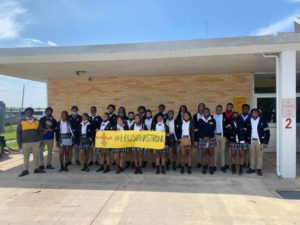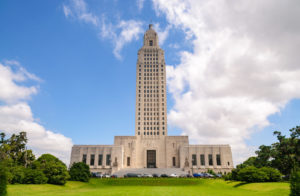Spokane lawmaker resurrects $86 million taxpayer-funded school lunch plan
(The Center Square) – A Spokane lawmaker is bringing back legislation to put school meals for every student attending public, charter, and state-tribal schools in Washington on the taxpayers’…

(The Center Square) – A Spokane lawmaker is bringing back legislation to put school meals for every student attending public, charter, and state-tribal schools in Washington on the taxpayers’ tab.
State Rep. Marcus Riccelli, a Democrat representing the 3rd Legislative District, has introduced House Bill 2058, which was referred to the House Committee on Education. A public hearing was held Jan. 11 and the committee has scheduled an executive session this Thursday at 8 a.m.
The measure has 34 co-sponsors. A companion bill, Senate Bill 5964, introduced by Sen. T’wina Nobles, D-Tacoma, had a first reading last week by the Senate Early Learning and K-12 Education Committee.
As drafted, HB 2058 would require school districts to provide breakfast and lunch without charge to any requesting student, regardless of ability to pay, beginning with an initial phase in the 2024-25 school year. It would also modify funding provisions for certain learning assistance programs and bonuses paid to nationally certified staff through 2028. However, if the bill is enacted, its provisions would be nullified if funding is not provided in the state’s operating budget.
“This shouldn’t be a partisan issue, or a budget issue,” Riccelli said on his legislative website. “It’s about kids. Growing children need healthy, nutritious meals in order to thrive.”
According to the Office of Superintendent of Public Instruction, the state’s additional cost is estimated at $86.3 million per year.
Riccelli introduced similar legislation last year. The “universal meals” proposal did not pass, but an amended version was signed into law to expand the existing free school meals program, allowing over half of the state’s 1.1 million public school students to qualify. Changes in that program are slated to take effect on Sept. 1.
Currently, school lunch and breakfast programs for free or reduced-price meals are funded through the U.S. Department of Agriculture with eligibility based on a student’s family income compared to tiers of the federal poverty level. In Washington, programs are administered by the Office of the Superintendent of Public Instruction, which provides reimbursements to school districts for served meals that meet federal requirements. There is also an alternative to household applications, called the Community Eligibility Provision, that allows schools with high numbers of low-income students to serve free meals to all students.
“We hear a lot about learning loss and failing test scores,” said Riccelli. “One way we can address that is to ensure our kids don’t go to class hungry and have the necessary food in their bellies to help them achieve success.”
OSPI is supportive of providing free meals – that is, taxpayer funded – to all students regardless of economic status. The superintendent’s office has requested state funding to supplement federal reimbursement and cover costs for schools not eligible to participate in federal universal meals programs.
Specifically, state funds would pay the $3.56 difference between the USDA’s “free” lunch rate of $4.35 and its “paid” lunch reimbursement rate of 79 cents. For a family of five, that equates to saving about $400 a month in meal costs. For breakfasts, the gap is $2.17 between USDA’s reimbursement rate of $2.67 for “free” qualifiers and 50 cents for a paid meal.
The result is an estimated 21.45 million lunches and 4.57 million breakfasts that would need to be reimbursed by the state to local school districts at an estimated cost of $86.3 million per year.
According to OSPI, participation rates increase significantly when student meals are free, school districts no longer have to expend time and money tracking and collecting meal debts from families, and a stigma is lifted from students perceived as poor because they participate in school meals, particularly breakfast.
“… many hungry students opt out of eating for fear of identifying in front of their peers,” OSPI states.



